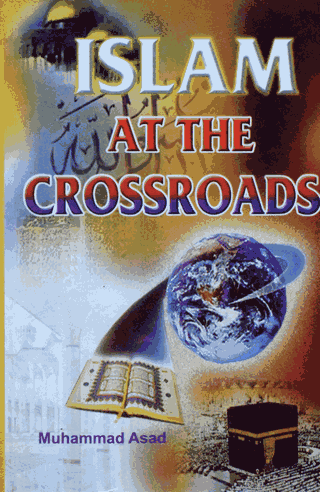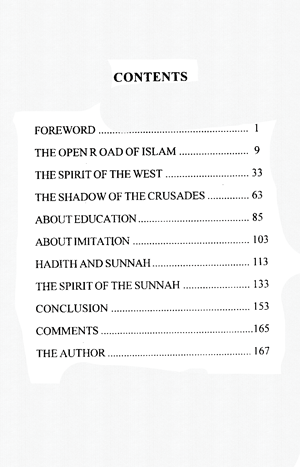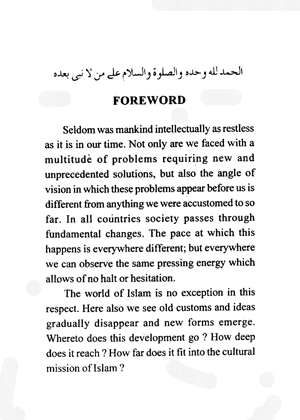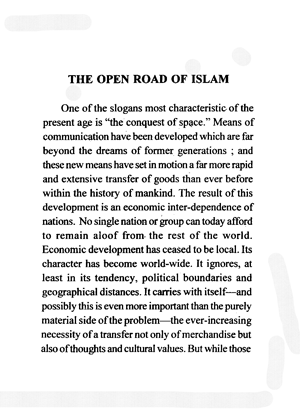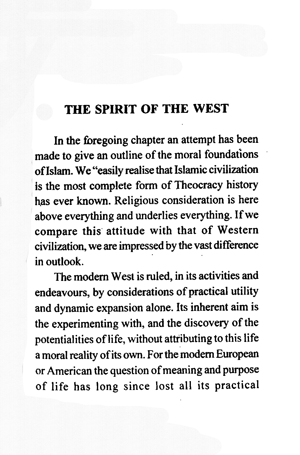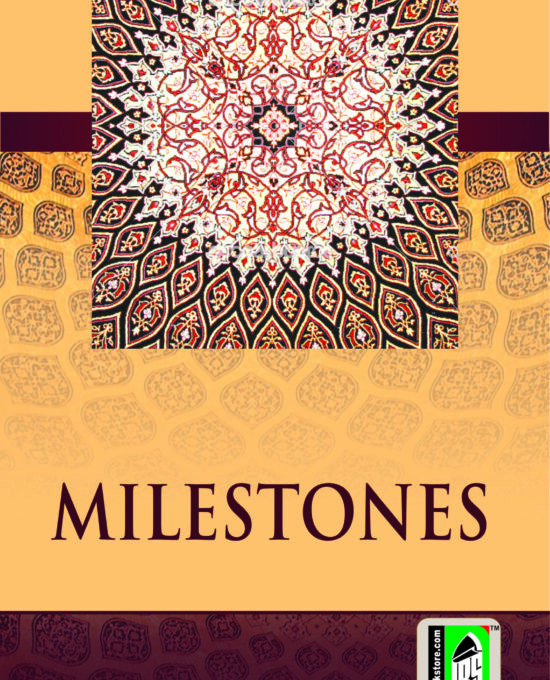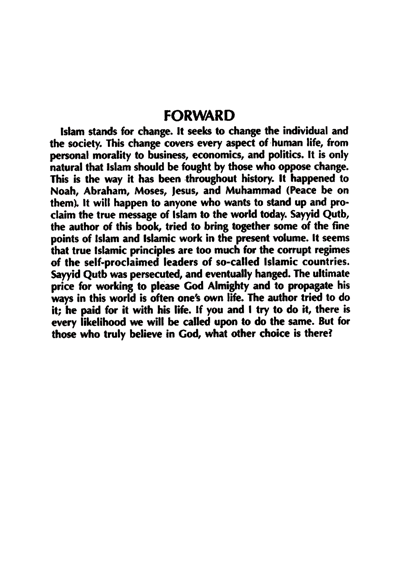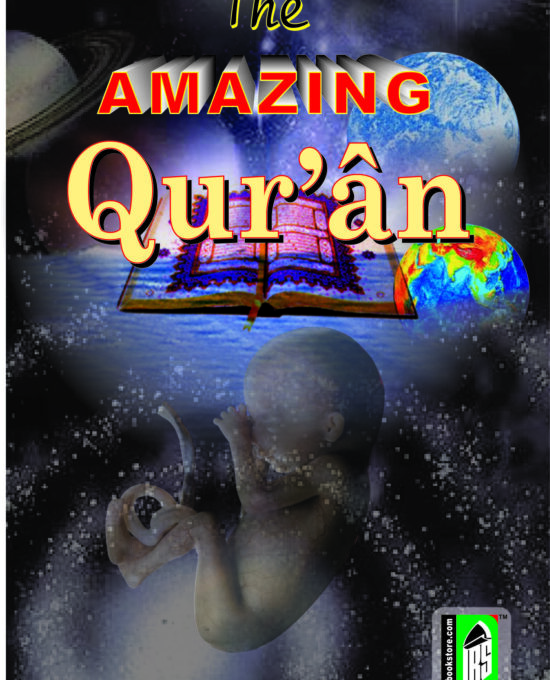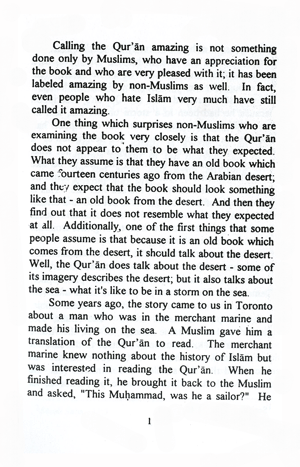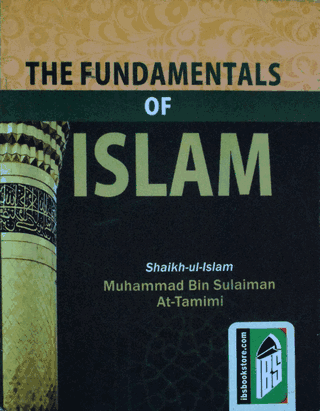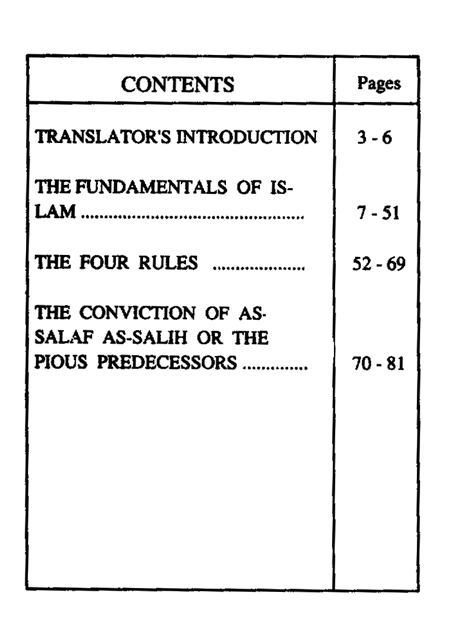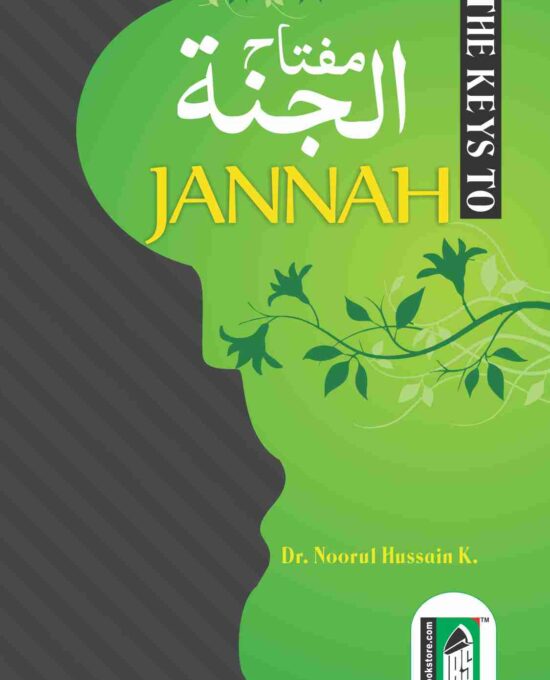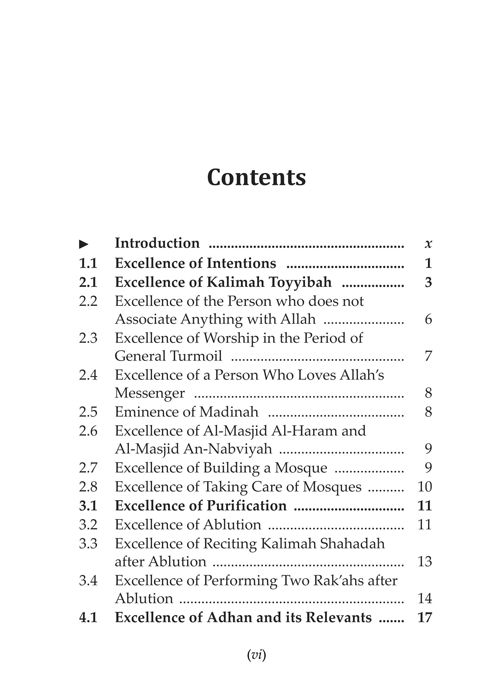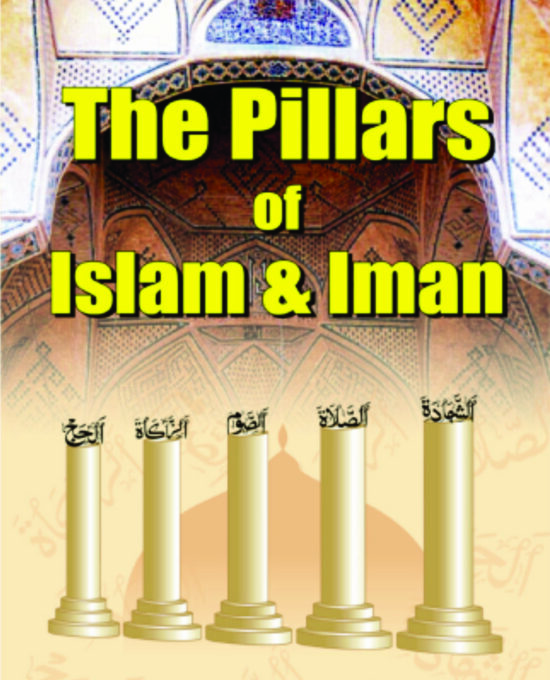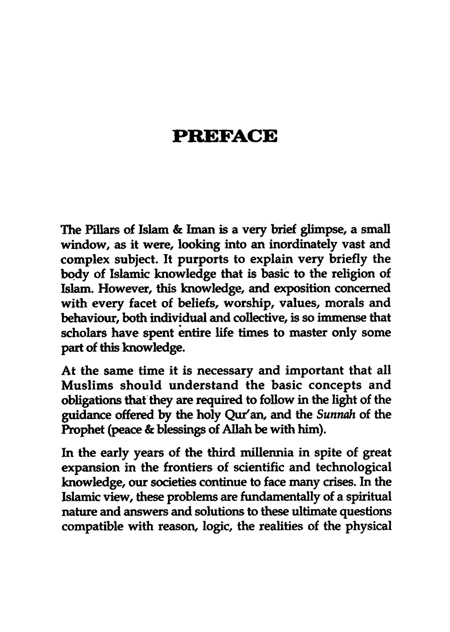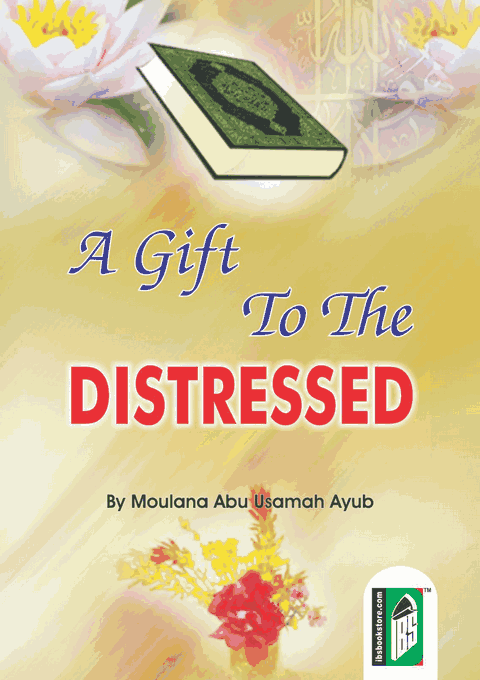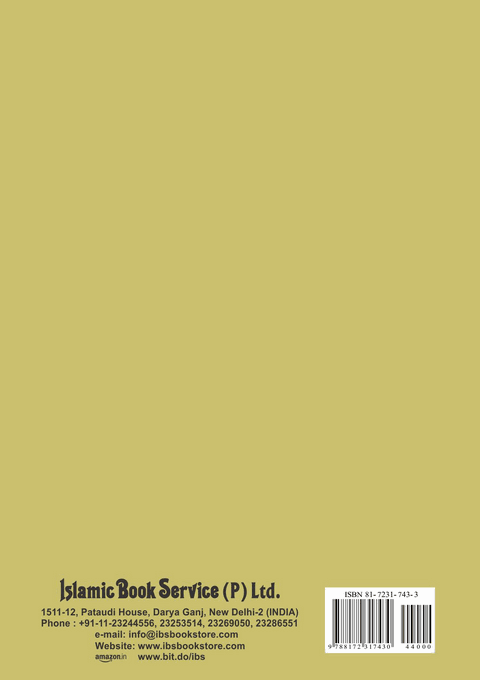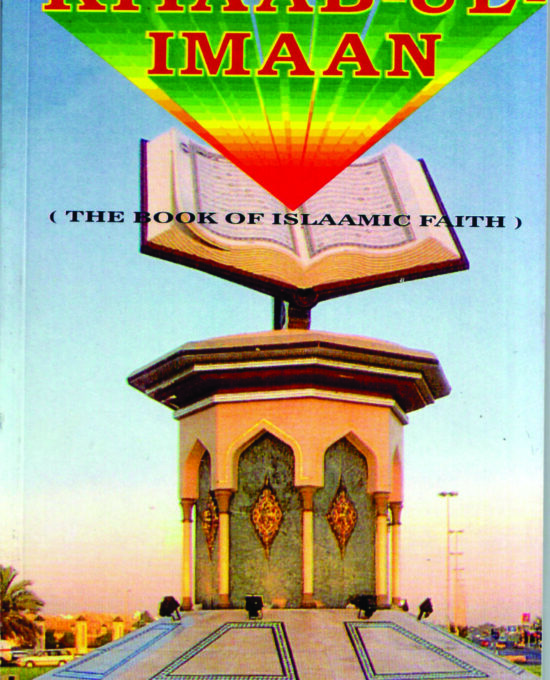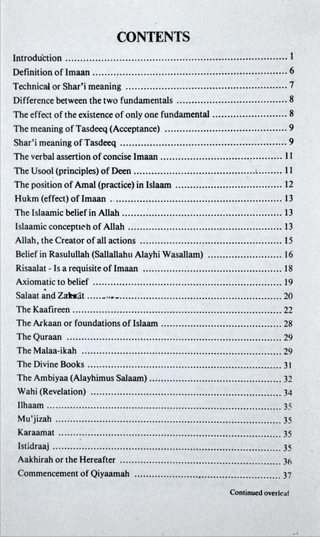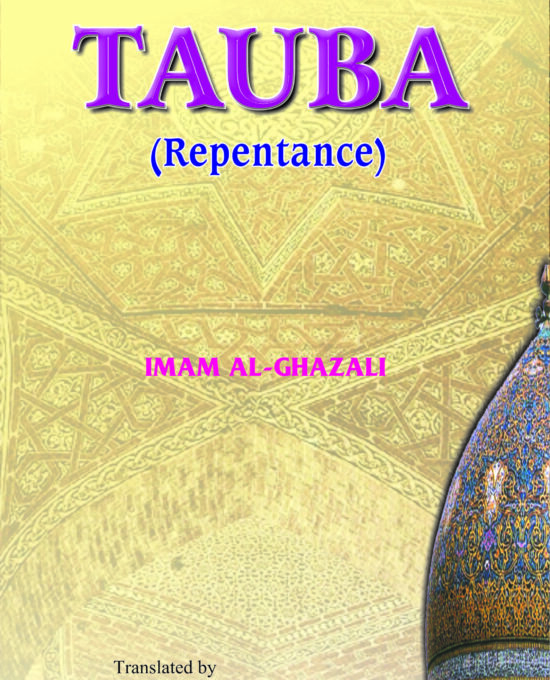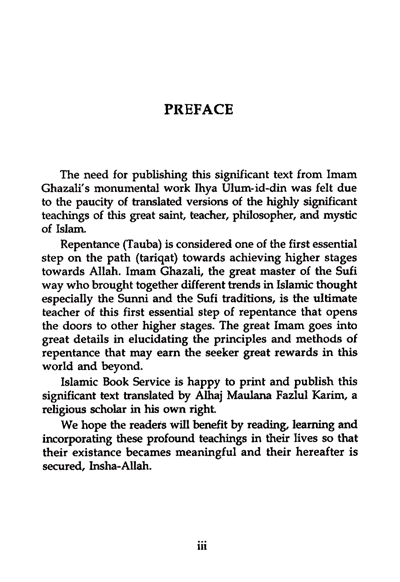Islam At the Crossroads – (English) – (PB)
₹95.00
Seldom was mankind intellectually as restless as it is in our time. Not only are we faced with a multitude of problems requiring new and unprecedented solutions, but also the angle of vision in which these problems appear before us is different from anything we were aCCustomed to so far. In all countries society passes through fundamental changes. The pace at which this happens is everywhere different; but everywhere we can observe the same pressing energy which allows of no halt or hesitation. The world of Islam is no exception in this respect. Here also we see old customs and ideas gradually disappear and new forms emerge. Whereto does this development go? How deep does it reach? How far does it fit into the cultural mission of lslam? This book has no pretension to giving an exhaustive answer to all these questions. Owing to its limited space only one of the problems facing the Muslims today, namely, the attitude they should adopt towards Western civilization has been selected for discussion. The vast implications of the subject, however, made it necessary to extend our scrutiny over some basic aspects of Islam, more particularly with regard to the principle of Sunnah. It was impossible to give here more than the bare outline of theme wide enough to fill many bulky volumes. But nonetheless–or, perhaps, therefore I feel confident that this brief sketch will prove, for others, an incentive to further thought on this most important problem. And now about myself because the Muslims have a right, when a convert speaks to diem, to know how and why he has embraced Islam. In 1922 I left my native country, Austria, to travel through Africa and Asia as a Special Correspondent to some of the leading Continental newspapers, and spent from that year onward nearly the whole of my time in the Islamic East. My interest in the nations with which I came into contact was in the beginning that of an outsider only. I saw before me a social order and an outlook on life fundamentally different from the European, and from the very first there grew in me a sympathy for the more tranquil I should rather say, more human-conception of life, as compared with the hasty, mechanized mode of living in Europe. This sympathy gradually led me to an investigation of the reasons for such a difference, and I became interested in the religious teachings of the Muslims. At the time in question, that interest was not strong enough to draw me into the fold of lslam, but it opened to me a new vista of a progressive human society, Organised with a minimum of internal conflicts and a maximum of real brotherly feeling. The reality, however, of present day Muslim life appeared to be very far from the ideal possibilities given in the religious teachings of Islam. Whatever, in Islam, had been progress and movement, had turned, among the Muslims, into indolence and stagnation, whatever there had been of generosity and readiness for self-sacrifice had become among the present day Muslims, perverted into narrow-mindedness and love off easy life. Prompted by the discovery and puzzled by the obvious incongruence between Once and Now, I tried to approach the problem before me from a more intimate point of view that is, I tried to imagine myself as being within the circle of lslam. It was a purely intellectual experiment , and it revealed to me, within a very short time, the right solution. I realised that the one and only reason for the social and cultural decay of the Muslims consisted in the fact that they had gradually ceased to follow the teachings of lslam in spirit. Islam was still there, but it was a body without soul. The very element which once had stood for the strength of the Muslim world was now responsible for its weakness , Islamic society had been built, from the very outset, on religious foundations alone, and the weakening of the foundations has necessarily weakened the cultural structure and possibly might cause its ultimate disappearance immensely practical the teachings of lslam are, the more eager became my questioning as to why the Muslims had abandoned their full application to real life. I discussed this problem with many thinking Muslims in almost all the countries between the Lybian Desert and the Pamirs, between the Bosphorus and the Arabian Sea. It almost became an obsession which ultimately overshadowed all my other intellectual interests in the world of lslam. The questioning steadily grew in an emphasis until I, a non-Muslim, talked to Muslims as if I were to defend Islam from their negligence and indolence. The progress was imperceptible to me, until one day it was in autumn 1925, in the mountains of Afghanistan a young provincial Governor said to me : “”But you are a Muslim, only you don’t know it yourself.”” I was struck by these words and remained silent. But when I came back to Europe once again, in 1926, I saw that the only logical consequence of my attitude was to embrace Islam. So much about the circumstances of my becoming a Muslim. Since then I was asked, time and again : “” Why did you embrace Islam? What was it that attracted you particularly? and I must confess : don’t know of any satisfactory answer. It was not any particular teaching that attracted me, but the whole wonderful, inexplicably coherent structure of moral teaching and practical life-programme. I could not say, even now, Which aspect of it appeals to me more than any other. Islam appears to me like a perfect work of architecture. All its parts are harmoniously conceived to complement and support each other, nothing is superfluous and nothing lacking, with the result of an absolute balance and solid composure. Probably this feeling that everything in the teachings and postulates of Islam is “”in its proper place””. Has created the strongest impression on me. There might have been, along with it, other impressions s also which today it is difficult for me to analyse. After all, it was a matter of love , and love is composed of many things : of our desires and our loneliness, of our high aims and our shortcomings, of our strength and our weakness. So it was in my case. Islam came over me like a robber who enters a house by night , but, unlike a robber, it entered to remain for good.
Ever since then I endeavored to team as much as I could about Islam. I studied the Qur’an and the Traditions of the Prophet (peace and blessings be upon him) , I studied the language of lslam and its history, and a good deal of what has been written about it and against it. I spent over five years in the Hijaz and Najd, mostly in al-Madinah, so that I might experience something of the original surroundings in which this religion was preached by the Arabian Prophet. As the Hijaz is the meeting centre of Muslims from many countries, I was able to compare most of the different religious and social views prevalent in the Islamic world in our days. Those studies and comparisons created in me the firm conviction that Islam, as a spiritual and social phenomenon, is ‘still, in spite of all the drawbacks caused by the deficiencies of the Muslims, by far the greatest driving force mankind has ever experienced , and all my interest became, since then, centered around the problem of its regeneration.
This little book is a humble contribution towards the great goal. It does not pretend to be a dispassionate survey of affairs : it is the statement of a case, as I see it : the case of Islam versus Western civilization. And it is not written for those with whom Islam is only one of the many, more or less useful, aCCessories to social life, but rather for those in whose hearts still lives a spark of the flame which burned in the Companions of the Prophet the flame that once Made Islam great as a social order and a cultural achievement. (Muhammad Asad, Delhi, March, 1934 )
10 in stock
In a world where the western trends, ideas and customs are growing and spreading at an exponential rate, it is quite visible, in a broader view,unfortunately, that these trends are suCCessfully sidelining the core Islamic culture anda values.Muahmmad Asad puts forward a series of valid concerns and arguments on todays state of Islam and its unseen war against the Western Civilisation.
Additional information
| Weight | 0.18 kg |
|---|---|
| Dimensions | 18 × 12 × 0.9 cm |
| Author Name / Translator | Muhammad Asad |
| Published by | Islamic Book Service P. Ltd – India |
| ISBN | 9788172317670, 9788172317676 |
| Binding Type | Paper Back |
| Publication Year | 2006 |
| Weight (kg) | 0.15 |
| Pages | 1-168+8 |
| Dimensions | 18cm X 12cm |
| Length (cm) | 18 |
| Width (cm) | 12 |
| Height (cm) | 0.9 |
| Printing Colour | 1Col. |
| Book Language(s) | English |

